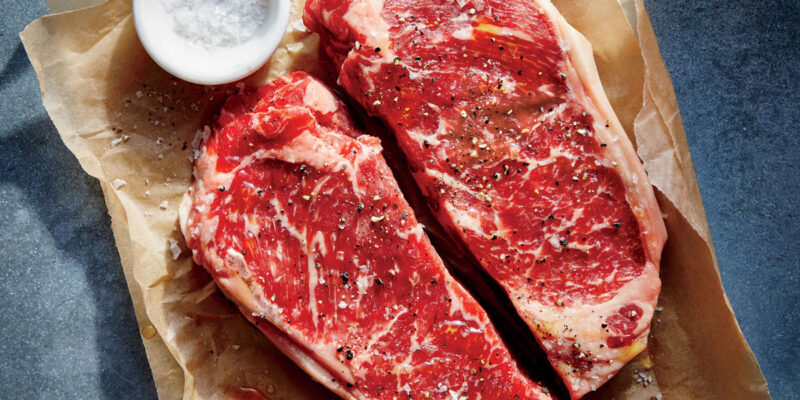As eating habits have matured, so have the industries surrounding them. For example, there has been a growing awareness of the food we consume and its impact on our health, the environment, and animal welfare. This shift in consciousness has led to an increased demand for grass-fed beef over big industry-led approaches. However, what is it that makes grass-fed beef better than its conventionally raised counterparts? Here are some facts to note:
- Nutrient Density
Grass-fed beef is known for its exceptional nutrient profile. Cattle that are primarily grass-fed produce meat that is richer in essential nutrients. Grass contains a wide array of vitamins and minerals, and when cattle graze on natural pastures, they absorb these nutrients, passing them on to the meat that ends up on your plate. Grass-fed beef is notably higher in omega-3 fatty acids, which are associated with various health benefits, including improved heart health and reduced inflammation.
- Lower Unhealthy Fats
Compared to conventionally raised beef, grass-fed beef is lower in unhealthy fats, particularly saturated fats. The animals graze on grasses, which are lower in fat content than the grains and other high-calorie feed given to conventionally raised cattle. As a result, grass-fed beef contains a healthier balance of fats, making it a heart-healthy choice for those looking to reduce their saturated fat intake.
- Better Animal Welfare
A key aspect that sets grass-fed beef apart! The animal welfare associated with this method of farming is much better than conventional grain-fed approaches. Grass-fed cattle typically have more space to roam and graze, and they’re not subjected to the crowded and often inhumane conditions of feedlots. This leads to a higher quality of life for the animals, aligning with ethical and humane farming practices.
- Environmentally Sustainable
Grass-fed beef production is often more environmentally sustainable than conventional methods. It requires less energy and resources to raise cattle on natural pastures than to produce the grains and other feed used in conventional farming. Additionally, grass-fed farming practices can improve soil health and reduce the environmental impact of cattle farming.
- Fewer Hormones and Antibiotics
Conventional feedlots are chockful of hormones and antibiotics. These result in an unhealthy and almost artificial experience. Grass-fed cattle are raised free from heavy hormones, thus reducing any chance of chemical residue. Choosing grass-fed beef can be seen as a way to support more responsible and transparent food production practices.
Grass-fed beef is miles apart from any alternative! When choosing a reputed source like Papa Earth grass fed beef, you’re guaranteed an ethical and healthier experience.

Comments